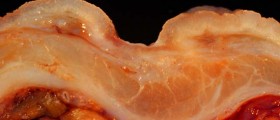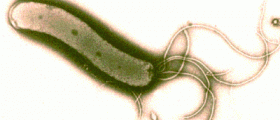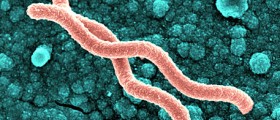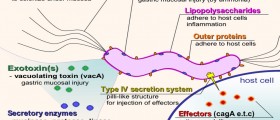
Peptic ulcers are sores which are formed in the inner lining of our stomach or the upper small intestine. There are several different causes of this condition. Regardless, it takes place once the protective layer which guards our stomach or intestine is destroyed, allowing the digestive juices to damage the area. This is possible because these juices contain hydrochloric acid and pepsin, an enzyme which is capable of hurting the tube which spreads from our throat to our stomach. In the past, people were forced to live with peptic ulcers, since no successful treatment was available. Nowadays, there are numerous ways of dealing with this problem and preventing it from happening in the first place.
Reasons behind Peptic Ulcers
Peptic ulcers are triggered by certain factors. Most commonly, people infected with a specific type of bacteria, called Helicobacter pylori, end up suffering from peptic ulcers. Additionally, nonsteroidal anti-inflammatory drugs can lead to the same effect, damaging the protective mucus layer in our stomach or intestine. As it was mentioned above, once this takes place, the digestive juices run loose, damaging the linings on our stomach or intestine, creating peptic ulcers.
Signs of Peptic Ulcers
The affected area, when it comes to pain and discomfort, is the one between your bellybutton and breastbone. Namely, if the pain you are feeling in this area is burning, possibly combined with back pain as well, lasting anywhere from several minutes to several hours, you might be suffering from peptic ulcers. The symptoms may come and go during the course of several weeks.
Once you experience this, try taking an antacid or acid reducer medication. If the symptoms reduce or go away, you have a peptic ulcer. Some of the additional symptoms include loss of appetite, weight loss, bloating and feeling nauseous after eating and vomiting. Finally, you may vomit dark blood, resembling coffee grounds or pass dark stool.
Diagnosis and Prevention
Once you seek medical treatment, your doctor will look into your medical history and perform a physical examination. If you are younger than 55 and are suffering from less serious symptoms, there is a great chance that you are suffering from Helicobacter pylori infection. However, before such diagnosis is possible, the doctor needs to perform endoscopy, looking for the ulcer and testing it. Once the problem is diagnosed, you will have proper medications prescribed and the treatment will commence.
As for the prevention factors you can ensure by yourself, do not smoke or take Aspirin, ibuprofen and other such anti-inflammatory drugs for a longer periods of time. If you need to take the medications, ask your doctor for possible alternatives. Also, take it easy on alcohol, limiting your consumption to 2 drinks a day, never drinking when you have eaten nothing beforehand.

















Your thoughts on this
Loading...